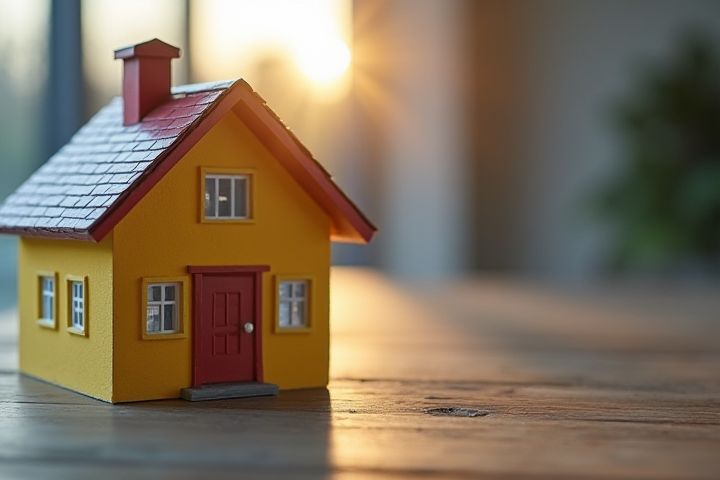
Homeowners, renters, and landlords should consider obtaining house liability insurance to protect themselves from potential financial losses resulting from accidents or injuries on their property. This type of insurance covers legal fees and medical expenses if someone is injured on your premises, safeguarding your assets from costly claims. It is particularly important for those hosting guests or operating a business from home, as the risk of incidents increases in these situations. Even tenants can benefit from personal liability coverage to ensure they are protected in case of unexpected damages or injuries. Evaluating your lifestyle and property usage will help you determine the necessary level of coverage to maintain peace of mind.
Who Needs House Liability Insurance
Homeowners
Homeowners should consider house liability insurance to protect their financial assets against potential lawsuits resulting from injury or property damage to others on their premises. With statistics showing that liability claims can range from a few thousand to over a million dollars, having adequate coverage becomes essential. This type of insurance typically covers incidents such as slip-and-fall accidents, which can lead to significant medical expenses or legal fees. In 2022, the average cost of liability claims reached approximately $30,000, emphasizing the necessity of safeguarding your home and finances.
Landlords
Landlords who rent out residential properties should prioritize house liability insurance to protect their investment and finances. This insurance typically covers legal expenses and damages if a tenant or visitor sustains injuries on the property, with coverage amounts often exceeding $1 million. A liability claim can cost you thousands of dollars, making this insurance a necessity for safeguarding your assets. Ensuring that your policy includes specific provisions related to rental properties is essential for comprehensive protection.
Tenants
Tenants should consider obtaining renter's liability insurance to protect against potential damages or injuries that may occur within their rented property. This type of insurance covers legal costs and compensation if someone is injured while visiting your unit, providing peace of mind. Furthermore, it safeguards you from financial losses related to accidental damage caused to the landlord's property, such as flooding or fire. By investing in renters liability insurance, you can ensure that you are financially protected and responsible while residing in your rental home.
Airbnb hosts
Airbnb hosts require house liability insurance to protect against potential risks associated with renting their property. With over 4 million hosts on the platform globally, the likelihood of incidents occurring, such as guest injuries or property damage, increases significantly. Without adequate coverage, you may face out-of-pocket expenses that could reach thousands of dollars. Policies typically offer varying coverage limits, often ranging from $1 million to $10 million, ensuring financial security in the event of legal claims or accidents.
Condo owners
Condo owners should prioritize house liability insurance to protect themselves from potential legal claims and financial losses. This insurance is vital in covering expenses related to injuries or damages occurring within their unit or common areas of the condominium complex. You could face substantial costs if a visitor gets injured on the property, with liability claims averaging over $30,000. Moreover, many condominium associations mandate liability coverage, ensuring a safer living environment and financial security for all residents.
Manufactured home residents
Manufactured home residents should consider house liability insurance to protect themselves from potential legal claims arising from accidents or injuries on their property. With millions of manufactured homes across the United States, the risk of incidents, such as guest injuries or property damage, increases the need for financial security. Coverage typically ranges from $100,000 to $1 million, offering a buffer against costly legal fees and settlements. Protecting your assets is crucial, especially for those who live in manufactured homes often situated in communities with shared amenities.
Co-op dwellers
Co-op dwellers should prioritize house liability insurance to protect themselves from potential financial burdens resulting from accidents or damages within their shared living environment. This insurance typically covers medical expenses for injuries sustained by guests and damages to shared property, ensuring peace of mind in a communal setting. Given that co-op boards may impose strict liability rules, having this coverage can safeguard your personal assets against costly legal claims. Depending on your location, liability coverage can range from $100,000 to $1 million, making it a crucial investment for co-op residents.
Vacant property owners
Vacant property owners should prioritize house liability insurance to safeguard against potential risks associated with unoccupied dwellings. With 12% of homes in the U.S. reported as vacant in 2023, these properties can attract vandalism, theft, or accidents, making liability coverage essential. Without insurance, you could face significant financial burdens if someone is injured on your property or if damage occurs. Protecting your investment with the right coverage not only offers peace of mind but can also prevent costly legal expenses in the event of a claim.
Home-based business operators
Home-based business operators often require house liability insurance to protect their personal assets and ensure financial security. With an estimated 60% of small businesses being run from home, having coverage against potential lawsuits from clients or accidents is crucial. This insurance can cover damages or injuries linked to your business operations, safeguarding your home and business equipment. For peace of mind and to maintain uninterrupted service, securing a policy tailored to your needs is a wise investment.
Vacation home owners
Vacation homeowners should prioritize house liability insurance to protect their investment from potential accidents or injuries occurring on their property. With an average of 16% of U.S. households owning vacation homes, ensuring adequate coverage against lawsuits and medical expenses is crucial. This type of insurance typically covers costs arising from slip-and-fall incidents, property damage, or injuries to guests, which can amount to thousands of dollars. Protecting your vacation home not only safeguards your financial interests but also provides peace of mind while you enjoy your time away.
